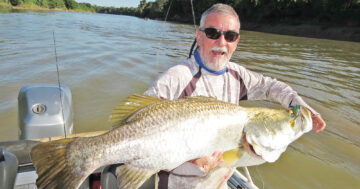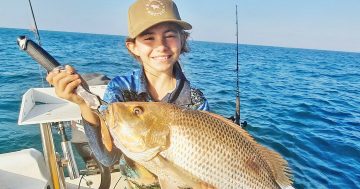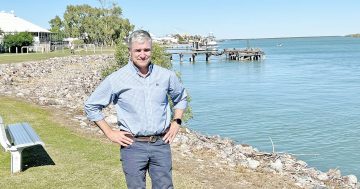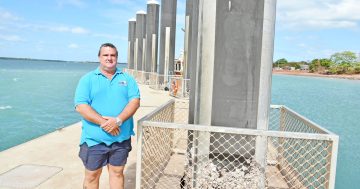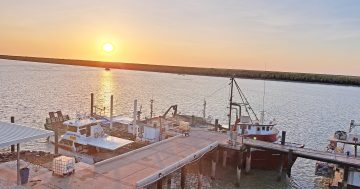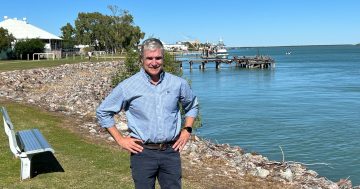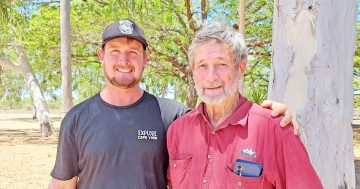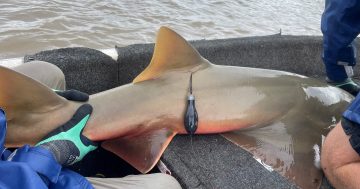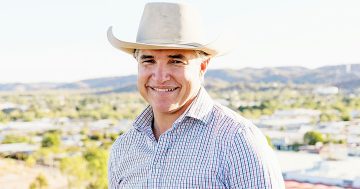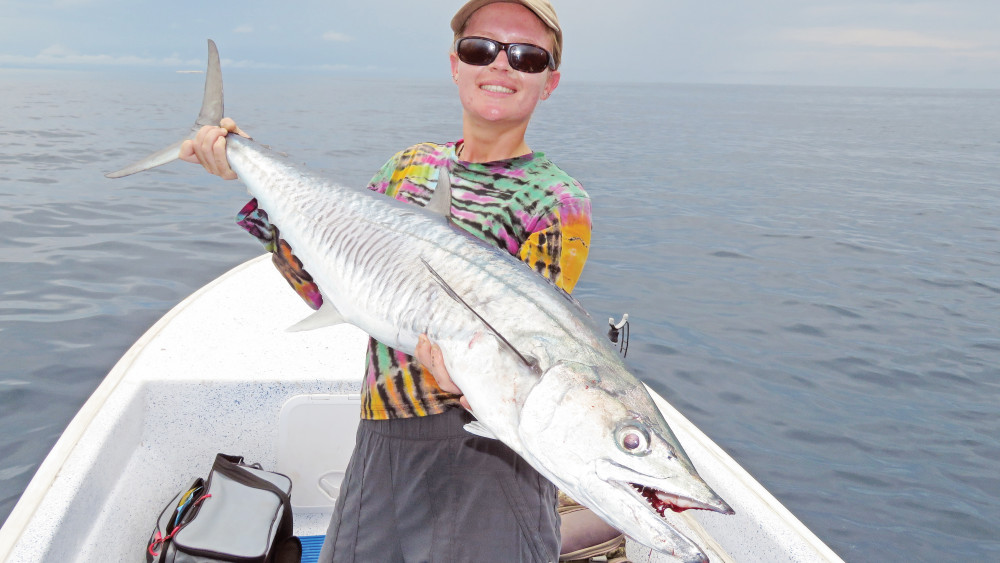
Dave Donald took this picture of Weipa resident Tilly Rehn on the east coast earlier this year after she ‘whispered up’ this great Spanish mackerel on a jigged soft plastic lure.
THE piece “Mackerel stats are fishy” in last week’s Cape York Weekly quoting Robbie Katter and Daniel McCarthy contains misleading information that only serves to distract attention away from critical problems in both Queensland’s east coast and Gulf of Carpentaria fisheries.
As a member of the Gulf Fisheries Working Group, and long-term recreational fishing advocate and charter fisher (landed my first Spanish mackerel in 1971), I feel adequately qualified to comment on some of the sensationalist inferences contained in their statements.
While anti-fishing groups have long been opposed to recreational fishing, to claim they have colluded in a major way to “slash Spanish mackerel quotas” is a fabrication.
Seeking to lay the blame for the depletion of Spanish mackerel stocks solely on Labor is another furphy as exceptionally poor fisheries management under BOTH major parties essentially created the current situation.
Mr Katter’s statement about importing Spanish mackerel from Indonesia is based upon Mr McCarthy’s much reported hyperbole suggesting that Indonesian Spanish mackerel originate from the same stocks as our eastern coast.
He only has to read the Fisheries Queensland assessment document to find that this is completely incorrect.
In fact, Gulf of Carpentaria Spanish mackerel are also a totally separate stock to their east coast counterparts, that have a range from northern NSW to PNG.
The low east coast Spanish mackerel stocks have resulted purely as a result of years of poor Queensland Fisheries management, that has allowed overfishing of the resource – end of story!
The Indonesian inference is completely without substance.
Now for some REAL facts!
East coast Spanish stocks have been assessed using the latest techniques, and are estimated at approximately 17 per cent of the original number.
Even allowing for significant errors, those numbers are still way below the established biological level for sustainability of 40 per cent and under the critical level of 20 per cent.
This has not happened overnight. In fact, a 2012 East Coast Spanish Mackerel Stock Assessment on page 27 of the Great Barrier Reef Outlook Report 2014 concludes that “the stock status of Spanish mackerel could be approaching overfished”.
So it’s clear that both LNP and Labor governments have failed to address this particular problem for over a decade.
Commercial and recreational fishers have been quick to question the assessment data, most of them without reading the report.
Many are refusing to face the fact that our Spanish mackerel are in serious trouble and this requires the instigation of urgent management measures to halt the decline and rehabilitate stocks.
No matter how the issue is twisted, this remains the crux of the matter.
Spanish mackerel are a schooling fish and therefore susceptible to hyper stability.
Very simply, this means that whether at a level of 100 or 20 individuals, it is still possible to catch, say five fish when they begin to feed, with the result that fishers don’t really notice the impact they are having on the population, as they see their catches as stable.
This is a phenomenon that has been scientifically recorded world-wide, in some cases only after supposedly healthy stocks suddenly collapsed.
It’s vitally important that conspiracy theories and half-truths are not allowed to distract from the problems our fishery currently faces.
The sooner measures are put into place to rehabilitate fish stocks, the quicker they will recover.
If you want your kids to still be able to catch Spanish mackerel in the future, it’s urgent that we allow Fisheries Queensland to act immediately!
Dave Donald has been a fisheries advocate for five decades and lives in Weipa, where he serves as the vice president of the Western Cape Chamber of Commerce and is an elected member of the Weipa Town Authority.

